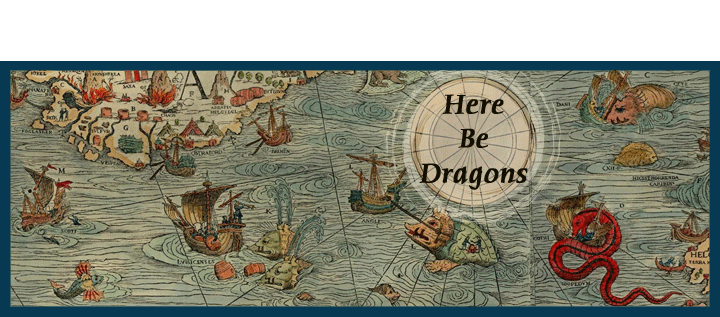Comes a time in everyone’s life to move on. Whether it’s a relationship, job or life itself.
Sometimes it’s easy. Sometimes not. I’ve done it recently myself and found it to be a wonderful breath of fresh air and a new way of life.
I started a media services company called Kayser Media, which has a business model similar to the Navy’s Seal Team Six combat model. The best, most highly-trained and experienced people are assembled into teams to work with small-to-medium businesses for specific high-impact business development projects. Whether it’s marketing, PR, SEO, social media, content creation, publishing, TV, or radio – or the complete menu or services – all work together as equal partners to deliver results for the client. Or, it could even be running a complete PR or Marketing Department on an interim basis until the company fills critical leadership vacancies or decides what business model (in-house vs. external) it wants to use.
Employee-Employer Relationship
In creating this new business venture I was forced to think of not only the skills and capabilities of the people I wanted to work with – but the employee vs employer relationship. This triggered a serious re-thinking of my past assumptions.
The Workplace is Transforming Before Our Eyes
The workplace (and even the very definition of work) and job opportunities are radically transforming before our eyes. Dramatically. This also means the mindset of the employee and employer will have to change as well – especially mine.
And it has.
But this post isn’t about Kayser Media. It’s about people looking for meaning and purpose in work. The type of work I want to do. And, the people I want to work with in the future.
I’m throwing this out there more as a question than anything else.

What Type of Employee Would You Want?
What kind of employee would YOU want to help you in a startup? Or in growing a business? A struggling business? A dying business?
Certainly someone with drive and…
A Car

In “Outliers: The Story of Success,” by Malcolm Gladwell, a section of the book talks about three requirements that allow us to be happy and fulfilled with the work we do. They are…
Complexity
What does that mean- complexity? Pretty simple. The work engages your mind. It allows you to dream, create, re-create, and be responsible for decisions and directions. This type of endeavor is in direct contrast to work that treats you like a human machine. A cog with no purpose besides function. That type of work environment creates GoMo’s … people who go through the motion but are not engaged.
GOMO = Goes through the Motions

Autonomy
Autonomy is incredibly important. You need to be able to work and create without a Napoleonic Overlord looking over your shoulder nitpicking or micro-managing.
Great works are born in chaos, confusion and high energy … not in a micro-managed work environment.
Relationship
A relationship between effort and reward. Think about that. How many jobs have that now? The harder I work, the more I make?
How many people have seen “across the board cuts” in jobs or budgets, no matter how well the person or group was doing? Penalizing all, instead of praising and raising the performers?
Who does not respond to a direct relationship between effort and reward?
I like Gladwell’s CAR … although he didn’t call it that. I needed something to remember it by, hence the acronym. But his CAR is missing something. A…
MAP
I interviewed Guy Kawasaki a while back about his book “Enchantment: The Art of Changing Hearts, Minds, and Actions .” Guy has an excellent vision of creating fulfilling and meaningful work FOR employees. It’s called a MAP.
Mastery
Give employees the right skills, abilities and time to gain complete dominion over their job. Allow people to go off the farm and continually learn about new things, new ways to do their job. This works, with one small caveat. The person has to be motivated and an auto-didact. Have the energy and gumption to teach themselves on their own time – and enjoy it.
Autonomy
Pretty much the same as Malcolm Gladwell.
You need the freedom to learn and the freedom to fail.
The freedom to pick yourself up after a disaster and move forward, without some nitpicking Napoleonic bureaucrat bugging you.
If you tell people where to go, but not how to get there, you’ll be amazed at the results. – General George S. Patton
But some people truly don’t like autonomy. They need structure to tell them what to do, how to do it and when to do it. This is the mindset of the past. It worked for the industrial age. But not for this meltdown of an economic job-shedding mess we’re in.
The future belongs to energetic autodidacts. Ones that need only be pointed in the right direction – and then they ask you not to block their way.
People that will create new processes, new businesses, new breakthroughs and ultimately new industries – if you only stay out of their way.
Purpose
If you combine mastery of the job with autonomy, you’re doing pretty good. If you’re living that life, it’s a pretty good gig. But the missing ingredient, according to Guy, is purpose. Being a part of something bigger than yourself. Making a difference in the world. A dedicated, fire-breathing believer in something that matters.
This, I think, is the hardest part. Particularly in these times. What if you have;
A job that sucks?
A job with low pay, no advancement possibilities, or toxic work environment?
A job that is ruled by sycophantic drones that only have their position because of nepotism?
And you’re treated like a mindless automaton or smart, but ultimately meaningless serf?
Whatever you are, be a good one. – Abraham Lincoln
That’s tough. But you can do it. Simply focus on doing the best you can at what you do while planning your escape from the soul-sucking situation.
I Don’t Want Employees
You don’t need employees these days. Relegate that serfdom term, employee, to the dustbin of mediocrity.
You need people who want to drive the CAR with their MAP to work passionately.
Partners in Purpose
These are not employees.
These are partners in purpose.
What could be better?


